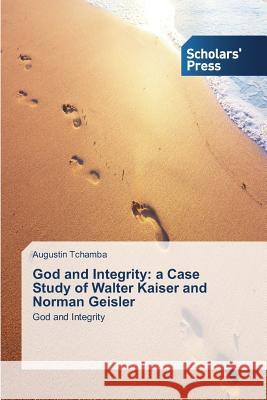God and Integrity: a Case Study of Walter Kaiser and Norman Geisler » książka
God and Integrity: a Case Study of Walter Kaiser and Norman Geisler
ISBN-13: 9783639700626 / Angielski / Miękka / 2014 / 332 str.
Is it ever right to lie? Could the God of the Bible, creator of the heavens and earth, who claims not to lie (Heb 6:18) actually contradicts Himself by lying and recommending lying as way of escape for resolving ethical dilemmas? Did God ever told the prophet Samuel to lie at the anointing of David? Could lying in Scripture be admitted for the sake of the greater good? Are the midwives' and Rahab's lies who receive no direct condemnation and Heb 11 referring to Rahab as a women of faith serve as scriptural examples? This book provides biblical exegetical and theological response to all of these questions. More importantly, it argues that the God of the Bible is the "Rock" whose ways are just and right (Deut 32:4). Two renown scholars with a shared theological heritage Walter C. Kaiser Jr. and Norman L. Geisler came to a divergent ethical conclusion as to the understanding of the moral issue of lying to save life as implied in Exod 1:15-21 and Josh 2:1-7. what caused such divergence of understanding? what are at the genesis of their divergent views? This book comes to grip with their respective hermeneutical principles and provide an assessment of the root cause of such divergences
Is it ever right to lie? Could the God of the Bible, creator of the heavens and earth, who claims not to lie (Heb 6:18) actually contradicts Himself by lying and recommending lying as way of escape for resolving ethical dilemmas? Did God ever told the prophet Samuel to lie at the anointing of David? Could lying in Scripture be admitted for the sake of the greater good? Are the midwives and Rahabs lies who receive no direct condemnation and Heb 11 referring to Rahab as a women of faith serve as scriptural examples? This book provides biblical exegetical and theological response to all of these questions. More importantly, it argues that the God of the Bible is the "Rock" whose ways are just and right (Deut 32:4). Two renown scholars with a shared theological heritage Walter C. Kaiser Jr. and Norman L. Geisler came to a divergent ethical conclusion as to the understanding of the moral issue of lying to save life as implied in Exod 1:15-21 and Josh 2:1-7. what caused such divergence of understanding? what are at the genesis of their divergent views? This book comes to grip with their respective hermeneutical principles and provide an assessment of the root cause of such divergences











